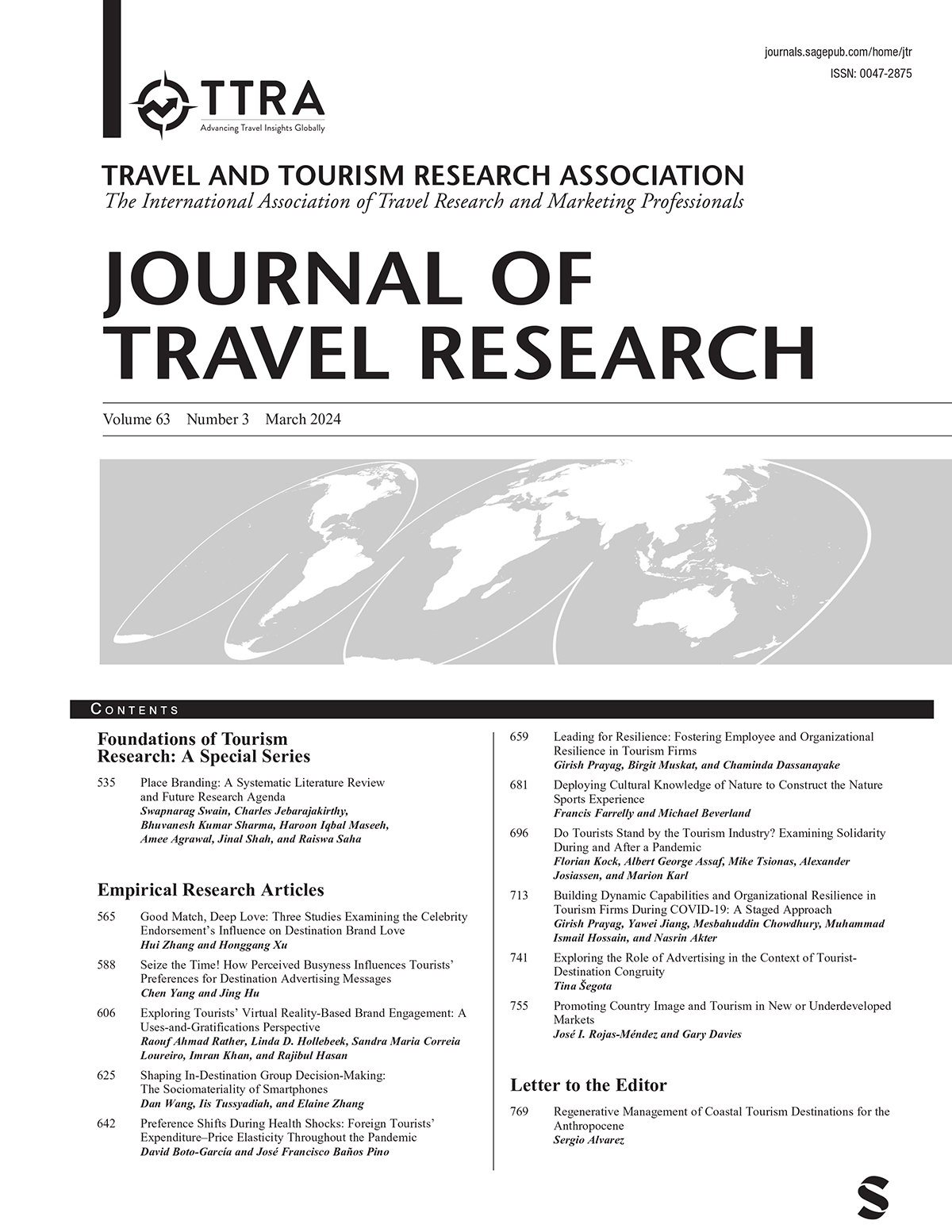上当受骗:对旅游诈骗合规因素的考察
IF 7
2区 管理学
Q1 HOSPITALITY, LEISURE, SPORT & TOURISM
引用次数: 0
摘要
了解游客如何应对和遵守骗局,有助于了解游客的自我保护。在本研究中,采用准实验设计来考察诈骗合规的外部(诈骗操作)和内部(个人)因素。从现实世界的旅游诈骗案例中开发出12个(3 × 4)场景,并在在线游客调查中以视频的形式呈现,以引出和观察决策。共有609名来自澳大利亚和中国的参与者完成了这项任务,并通过多种统计技术对数据进行了分析。结果表明,外部因素对诈骗依从性没有显著影响。三个内部因素,寻求刺激,旅行经历和风险感知,是更强的预测骗局遵守。本研究提供了对游客行为的理论见解,并有助于对诈骗合规的前因有新的理解。本文章由计算机程序翻译,如有差异,请以英文原文为准。
Falling for Tourist Scams: An Examination of Scam Compliance Factors
Understanding how tourists respond to and comply with scams sheds light on tourist self-protection. In this study, a quasi-experimental design was employed to examine external (scam-operation) and internal (personal) factors of scam compliance. Twelve (3 × 4) scenarios were developed from real-world tourist scam cases and presented in the form of videos in an online tourist survey to elicit and observe decisions. A total of 609 participants from Australia and China completed the task, and the data were analyzed through multiple statistical techniques. The results suggested that the external factors of scam compliance did not exert a significant impact. Three internal factors, sensation-seeking, travel experiences, and risk perception, are stronger predictors of scam compliance. This study offers theoretical insights into tourist behavior, and contributes to new understandings of the antecedents of scam compliance.
求助全文
通过发布文献求助,成功后即可免费获取论文全文。
去求助
来源期刊

Journal of Travel Research
HOSPITALITY, LEISURE, SPORT & TOURISM-
CiteScore
18.90
自引率
9.00%
发文量
66
期刊介绍:
The Journal of Travel Research (JTR) stands as the preeminent, peer-reviewed research journal dedicated to exploring the intricacies of the travel and tourism industry, encompassing development, management, marketing, economics, and behavior. Offering a wealth of up-to-date, meticulously curated research, JTR serves as an invaluable resource for researchers, educators, and industry professionals alike, shedding light on behavioral trends and management theories within one of the most influential and dynamic sectors. Established in 1961, JTR holds the distinction of being the longest-standing among the world’s top-ranked scholarly journals singularly focused on travel and tourism, underscoring the global significance of this multifaceted industry, both economically and socially.
 求助内容:
求助内容: 应助结果提醒方式:
应助结果提醒方式:


